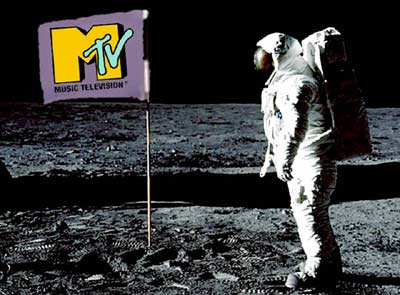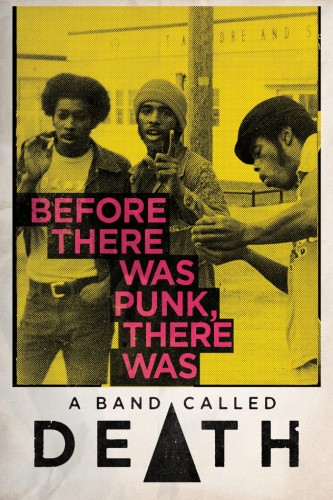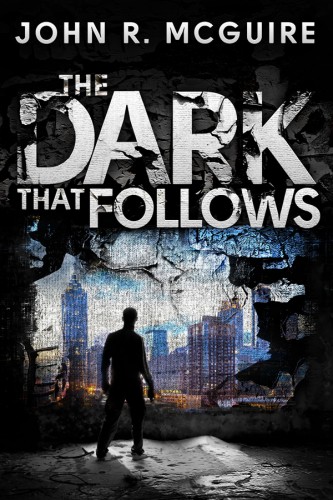I don’t remember caring much about music before I was about 12. Maybe that’s the way it is for most kids. I’m not sure. Most of what I listened to was either on MTV or through the oldies’ station on the radio. In fact, there was a window of time that I did not (nor did my younger sister) know the radio had other stations because it was always on that same station playing those old pop-rock songs (no, I don’t know what we thought the dial was for). Then as I got older, my tastes looked to the heavier music: Metallica, Helmet, Alice in Chains, Faith No More… before eventually coming into the various Grunge bands.
Yet there was one music type that eluded me. The only representative of Punk within my budding music collection was The Misfits. It’s not that I didn’t like it, it was more that I just didn’t have that exposure to it. It wasn’t until I was older that I began to hear the Ramones or The Clash or The Dead Boys. Even today my access to most punk is through online sources and not through my iPod.
That being said… over the Thanksgiving holiday, I had the opportunity to watch a documentary: A Band Called Death (it is on Netflix and well worth watching).
The gist is this: Death was a punk band before punk bands existed. In the early 70’s, when it would still be a couple of years before the world knew of the Ramones or the Sex Pistols, there were 3 African-American brothers from Detroit who was doing their own thing. Their love of “Rock” which caused them to buck the trend. To eschew Motown for a heavier sound. One influenced by the Beatles and Jimi Hendrix.
Three brothers who did their own thing and for a little while it worked. The Documentary basically tells their story of how they seemed poised to break and then, mostly because of the name of the band, DEATH, they kept getting turned down. A band with a name like that was going to have a hard time convincing people to look past the title. And so the rejections kept adding up, and like many things, when you are told “no” enough you stop wanting to get your head beaten in.
And the brothers moved onto a different sound with a different name.
I’ve checked out their music and must say that it feels ahead of its time, and my iPod is about to have a little bit of new/old songs for me to listen to.
But maybe the biggest thing I took from the documentary had to do with the fact that one brother effectively decided the fate for the whole band with the name (it was his idea to start), and then later by not giving in on changing the name to something… more agreeable. Think about it… you’re being told that the music you’re doing is good, maybe even great, but that pesky name is going to be a problem. What if you just changed it?
And my initial thinking would have been, “F- it, change the name and get paid. It doesn’t change the music you’ve already written and the music that you may write in the future.”
I mean, this would be the opportunity to have others hear your work… isn’t that, at least partially, why you got into music?
Maybe part of my thinking comes from the fact that I see titles as almost placeholders. In fact, in the stories I’ve worked on, the title is the thing that eludes me for the longest time. And even at the end, when I finally fight through the forest of words to come upon that single word or phrase which works for that tale… I’m not married to it.
So if they (whomever “They” are) asked me to change a book/story/comic title in order for more people to see it… I would make the change.
In a heartbeat.
However, if you see the title of your story as a true extension of the art, then wouldn’t the very nature of that change mean you were altering whatever you intended the reader to see?
Let’s go deeper then. Instead of focusing on the title, what if they were talking about changing the story? Not just editing, but really an overhaul to what the story was about.
Would that be right?
At what point would being asked to change something become too much? Where is my line? What aspects of the writing is worth fighting the good fight over and what things are just something to let slide. Pick the battles worth fighting.
And isn’t that the same thing as what David Hackney and Death was trying to fight against? They wanted to have control over their brand, their identity, but the more I think about it, I believe they just wanted to do it on their terms. Had they lived 30 years later, they would have been able to get their music out. Get past the gatekeepers and let the public determine their fate.
These are the thoughts that spin in my head as we close in on the end of the year. With the advent of the Kindle and then other readers/tablets/apps, we’re now in a world where I can have complete control. Right now, I’m in the process of finalizing my very first novel, The Dark That Follows. And in this new world, I can write my book and not have to answer to anyone. I can hire an editor to help me out, but at the end of the day I get to be the final arbiter on what stays and what goes. It will be my vision 100%.
And that is terrifying.
Because it is all on me. There are no final checks hired by some company to make sure that every bit of grammar is correct. Or that the cover looks right. Or… or….or…
All on me.
It’s made me realize that sometimes having all that control isn’t always the best thing. That old adage of “be careful what you wish for” fills my brain. This is the path that I have chosen, and the path I’m going to abide by. For better or worse.
So I salute you, Death… in my own way, I’m just following in your footsteps. I just hope I don’t have to wait 30+ years for someone to know it exists.









Great post.
Serious question time: Let’s say your publisher decides to call The Gilded Age “The Age of Gears and Steam”, and change the story to a coming of age tale with a John Hughes vibe, set in a high school. Would you make the changes? 🙂 j/k
Follow up: I’ve seen this on Netflix a few times, and now I’ve definitely have to check it out. Thanks for the heads up.
It is definitely worth it to check out. I’ve listened to the album a few times on youtube and now need to buy it as well.
As to the name change… if I could pull off John Hughes that’d be awesome:
You see us as you want to see us… a clockwork, an actress, a gunfighter, a magician, and a gypsy… sincerely yours, The Gilded Age!
Are you “johnny mcguire” that use to live in waycross?
Yes I am, a lifetime ago…
I’m thinking that you are the Burton that I might have played with a fair amount down there, yes?